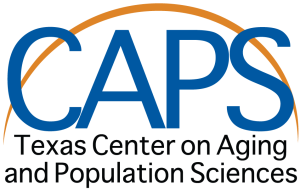a Colloquium
Wednesday, 03/30/2022 to 03/30/2022, 12:00 pm to 1:00 pm. ARCHIVED EVENT
Location: Online
 Virtual: https://utexas.zoom.us/j/97689476438
Virtual: https://utexas.zoom.us/j/97689476438
Please have your camera on. Do not share the Zoom link via social media – we want to avoid unwanted visitors.
Karen Fredriksen Goldsen, Professor and Director of the Goldsen Institute at the School of Social Work, University of Washington
LGBTQ+ older adults are emerging from the margins resilient and facing multiple inequities in our society. As a leading national and international expert on health and aging in underserved communities, Dr. Fredriksen Goldsen is the Principal Investigator of Aging with Pride: National Health, Aging and Sexuality/Gender Study (NHAS) and Aging with Pride: Innovations in Dementia Empowerment and Action (IDEA). Highlighting important new directions for the field, Professor Fredriksen Goldsen will address the health, aging, and well-being of LGBTQ+ older adults and findings from the longitudinal study, Aging with Pride, that is following 2,450 demographically diverse LGBTQ+ older adults over time. Despite the adversity in their lives or perhaps because of it, LGBTQ+ older adults display remarkable resilience —yet many remain at high risk of health and aging challenges and other economic and social disparities. This presentation will illuminate important lessons learned about health and aging from these landmark projects, including ways in which challenges and community engagement have shaped their lives. As we move forward, it is imperative to respond and promote well-being for this largely invisible population by developing and implementing innovative and accessible practices, services, and policies tailored to their distinct needs. The development of culturally responsive practices and policies are necessary to promote well-being in our increasingly diverse and aging society.
Objectives:
- After attending this session, participants will be able to specify disparities in health among LGBTQ+ older adults.
- After attending this session, participants will be able to identify key risk and protective factors impacting the health and well-being of LGBTQ+ older adults.
- After attending this session, participants will be able to characterize key components of inclusive care when serving LGBTQ+ older adults and their families.
Karen Fredriksen Goldsen, PhD, is a professor and director of the Goldsen Institute at the School of Social Work, University of Washington. She is a nationally and internationally recognized scholar addressing issues of health equity, disparities, resilience, longevity, and well-being among resilient yet underserved populations. She is the principal investigator of many landmark studies, including National Health, Aging, and Sexuality/Gender Study (NHAS): Aging with Pride (R01), the first federally funded longitudinal study of LGBTQ midlife and older adults; Innovations in Dementia Empowerment and Action (IIDEA, R01), the first randomly controlled trial (RCT) for LGBTQ+ older adults living with memory loss and their care partners; as well as other funded studies that identify factors accounting for health trajectories and longevity in underserved communities. Based on the findings of this research, she is developing and testing innovative solutions to complex social problems. Dr. Fredriksen Goldsen is author of five books and special issues and more than 100 publications in leading journals. Her research has been cited by top news sources such as the New York Times, Washington Post, U.S. News & World Report, CNN, NBC News, Forbes, and more than 50 international news outlets. Based on the ground-breaking nature of her work, she has received many awards, including the inaugural National Institutes of Health’s Sexual & Gender Minority Distinguished Investigator Award, PBS’s Next Avenue’s inaugural Top 50 Influencers in Aging, Gerontological Society of America’s Maxwell A. Pollack Award for Healthy Aging, and the UW-wide Distinguished Teaching Award. She is a Fellow of the Gerontological Society of America and the American Academy of Social Work and Social Welfare.
